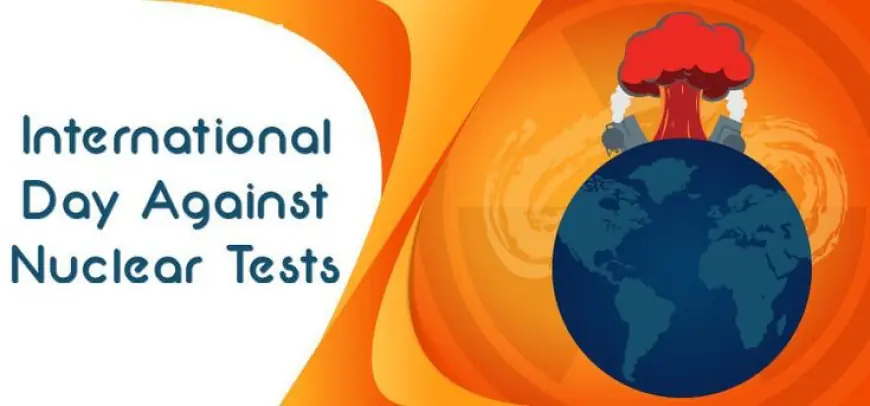International Day Against Nuclear Tests: The Health Effects of Nuclear Testing
The health effects of nuclear testing and the global call for change on the International Day Against Nuclear Tests.

Imediate Health Effects of Nuclear Testing:
1. Acute Radiation Sickness:
During a nuclear test, large amounts of radiation are released into the atmosphere, exposing people near the blast site to high levels of radiation. This results in acute radiation sickness, which manifests quickly with symptoms including nausea, vomiting, diarrhea, internal bleeding, and neurological disorders. In severe cases, acute radiation sickness can lead to death within hours or days.
2. Cancer Risks:
Exposure to nuclear radiation increases the risk of developing cancers, particularly leukemia, thyroid cancer, and lung cancer. Children, pregnant women, and individuals with weakened immune systems are at a higher risk of these diseases. These risks can persist long after the initial exposure.
Long-Term Health Effects:
1. Genetic Disorders and Birth Defects:
Radiation from nuclear tests can cause changes in DNA, leading to genetic mutations that are passed on to future generations. These mutations can result in birth defects, developmental delays, and rare genetic disorders, as well as increased rates of infertility and miscarriage.
2. Respiratory and Cardiovascular Disorders:
Radioactive particles released into the air can be inhaled, leading to chronic respiratory diseases such as pulmonary fibrosis, bronchitis, and lung cancer. Exposure to radiation can also increase the risk of cardiovascular diseases, including hypertension and heart attacks.
3. Mental Health Impact:
Many individuals exposed to nuclear tests live in constant fear of radiation-related diseases, which can lead to psychological issues such as anxiety, depression, and post-traumatic stress disorder (PTSD). The social stigma faced by survivors can exacerbate these mental health problems.
Environmental Health Effects:
1. Radiation Contamination of Water and Food:
Nuclear tests cause widespread contamination of soil, water, and crops. When these resources are contaminated, they become unsafe for human consumption, increasing the risk of radiation poisoning and related illnesses from consuming contaminated food and water.
2. Impact on Wildlife and Ecosystems:
Radiation contamination leads to the death and deformities of many animals and plants, significantly impacting biodiversity and ecosystems. This can indirectly affect human health through the food chain.
International Health Efforts Against Nuclear Testing:
Several international health organizations, such as the World Health Organization (WHO) and the International Atomic Energy Agency (IAEA), work to raise awareness about the health risks of nuclear testing. They support global efforts to ban nuclear tests and encourage countries to ratify the Comprehensive Nuclear-Test-Ban Treaty (CTBT), which aims to permanently end nuclear testing.
Conclusion:
The health effects of nuclear testing pose a serious threat to humanity and the environment. The damage caused by these tests is not limited to the present but extends to future generations. This underscores the significance of the International Day Against Nuclear Tests, which aims to highlight the health risks associated with nuclear testing and advocate for its complete abolition to safeguard human health and future generations.
What's Your Reaction?



















































